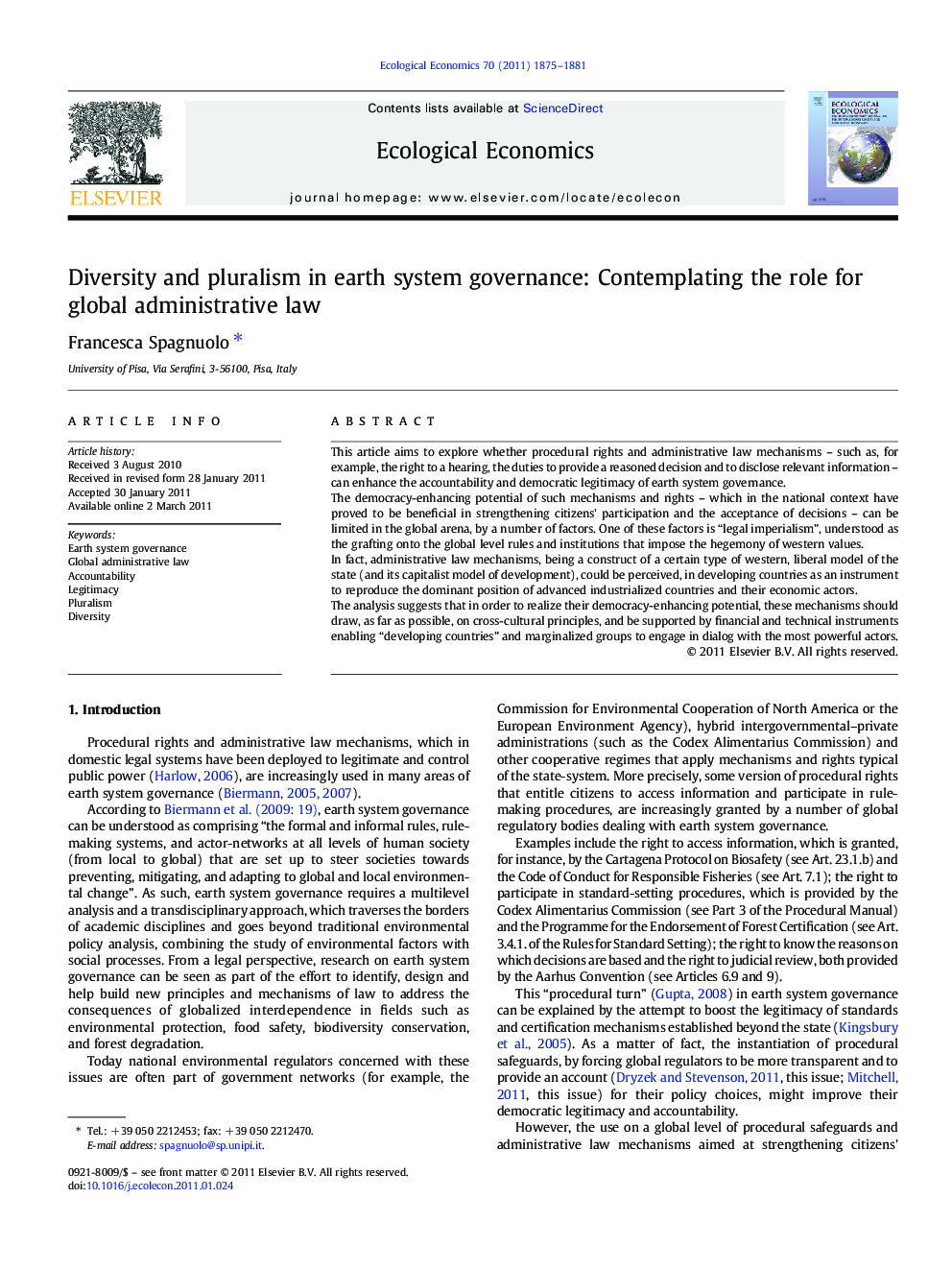| Article ID | Journal | Published Year | Pages | File Type |
|---|---|---|---|---|
| 5050553 | Ecological Economics | 2011 | 7 Pages |
This article aims to explore whether procedural rights and administrative law mechanisms - such as, for example, the right to a hearing, the duties to provide a reasoned decision and to disclose relevant information - can enhance the accountability and democratic legitimacy of earth system governance.The democracy-enhancing potential of such mechanisms and rights - which in the national context have proved to be beneficial in strengthening citizens' participation and the acceptance of decisions - can be limited in the global arena, by a number of factors. One of these factors is “legal imperialism”, understood as the grafting onto the global level rules and institutions that impose the hegemony of western values.In fact, administrative law mechanisms, being a construct of a certain type of western, liberal model of the state (and its capitalist model of development), could be perceived, in developing countries as an instrument to reproduce the dominant position of advanced industrialized countries and their economic actors.The analysis suggests that in order to realize their democracy-enhancing potential, these mechanisms should draw, as far as possible, on cross-cultural principles, and be supported by financial and technical instruments enabling “developing countries” and marginalized groups to engage in dialog with the most powerful actors.
Research Highlights⺠Global administrative law has a positive role to play in earth system governance. ⺠Power inequalities can limit the beneficial effects of administrative procedures. ⺠To enhance legitimacy, a pluralistic approach to global administrative law is needed.
